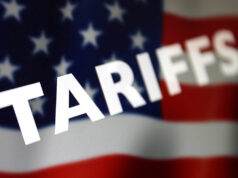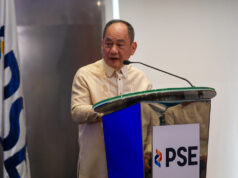Philippine blockchain association launched
THE BLOCKCHAIN Association of the Philippines (BAP), one of the first blockchain-related organizations in the country, has been launched to harness and develop its use cases in the country, including the banking sector.
In an interview, BAP Vice- Chairman Ramon Vicente V. De Vera II said the association was established to grow the use of the technology in several industries.
“We believe that blockchain can be harnessed for the greater good of the Filipinos,” Mr. De Vera told BusinessWorld on the sidelines of Blockchain Applications and Economics Forum 2018 held in Taguig City on Tuesday.
“We want an association where we could come together and put forth real blockchain solutions that will help the Filipinos and the problems in the Philippines.”
In an earlier statement, BAP chairman Justo A. Ortiz said the association is geared towards “providing entrepreneurs, corporate executives and fintech (financial technology) professionals the information and guidance needed” to implement the new technology in their businesses.
To achieve this, Mr. De Vera said the association will work with stakeholders such as fintech firms, start-up companies, trade associations as well as other blockchain organizations to develop the said technology.
“One of the things the association wants to do is to create a sandbox for experimentation and also bring together a lot of proponents,” said Mr. Vera, who is also the head of financial technology and partnerships at UnionBank of the Philippines.
Blockchain is a distributed data ledger which involves a large network of entities where data is stored in “blocks.”
The storage units are continuously updated and being secured using cryptography, making data management and data-driven processes decentralized, tamper-proof and more transparent.
The founding members of BAP include UnionBank, Australian Digital Commerce Association, coins.ph, Consensys, as well as Satoshi Citadel Industries.
In the previous press conferences, UnionBank said it has already adopted blockchain to connect rural banks and increase the efficiency of the lender’s processes.
Mr. De Vera explained that banking products and processes such as remittances, lending, customer identity, as well as information distribution, can be done through blockchain.
“There are quite a few low-hanging fruits, but there are other more complicated products and services that can have blockchain as a backbone infrastructure,” he added.
As more banking processes are operated using blockchain, Mr. De Vera said this can promote financial inclusion among unbanked Filipinos.
“Every Filipinos can now have access to low-cost and efficient money transfer service because of the blockchain. That becomes so compelling,” he said, citing UnionBank’s Project i2i initiative.
Project i2i is a blockchain-based transaction and payment system which connects rural banks into a financial network. It has the capability to push connectivity among the small-scale lenders, as they do not have the capability to join big clearing houses and are conducting their processes manually.
“We (UnionBank) are really embracing it and we’re trying to figure out how we can use blockchain for the banking community internally and externally,” Mr. De Vera noted.
Based on the latest Consumer Finance Survey of the Bangko Sentral ng Pilipinas, only two out of 10 families have been saving money in banks.
Aside from the banking industry, Mr. De Vera noted that blockchain can be used in other sectors such as healthcare, insurance, logistics and shipping among others. — Karl Angelo N. Vidal



